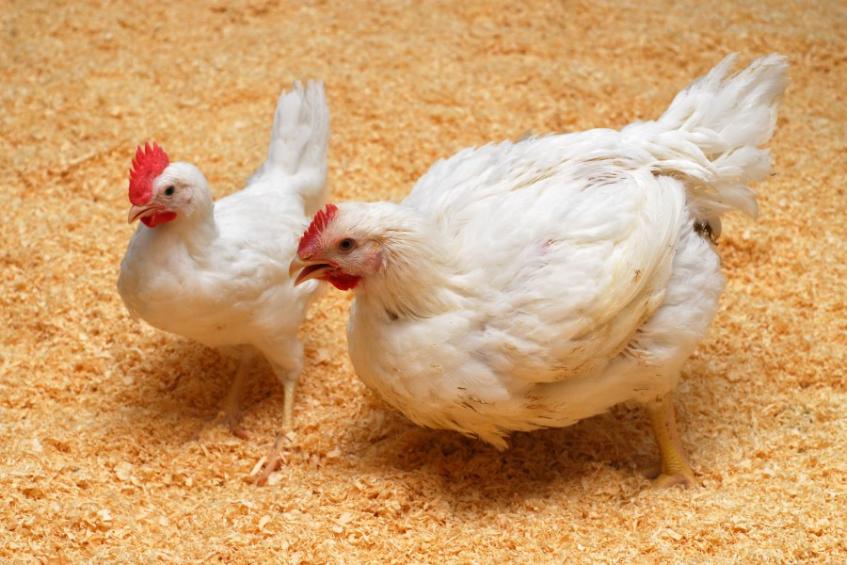In laboratory-grown chicken cells, deleting section of DNA prevented avian flu virus from spreading.
June 4, 2019

Researchers in the U.K. have used gene editing techniques to stop the avian influenza virus from spreading in laboratory-grown chicken cells, according to the University of Edinburgh.
The findings raise the possibility of producing gene-edited chickens that are resistant to the disease, the university said.
The researchers prevented the flu virus from spreading by deleting a section of chicken DNA inside the lab-grown cells, the announcement said. The next step will be to try to produce chickens with the genetic change.
Scientists targeted a specific molecule inside chicken cells called ANP32A. Researchers at Imperial College London found that during an infection, flu viruses hijack this molecule to help replicate themselves.
Working with experts from the University of Edinburgh's Roslin Institute, the researchers used gene editing techniques to remove the section of DNA responsible for producing ANP32A, the announcement said.
They found that the virus was no longer able to grow inside cells with the genetic change.
"This is an important advance that suggests we may be able to use gene editing techniques to produce chickens that are resistant to bird flu. We haven't produced any birds yet, and we need to check if the DNA change has any other effects on the bird cells before we can take this next step," said Dr. Mike McGrew with The Roslin Institute.
Avian flu is a major threat to farmed chickens worldwide, with severe strains killing up to 100% of birds in a flock. In rare instances, certain variations of the virus can infect people and cause serious illness.
Roslin Institute researchers previously worked with experts from Cambridge University using genetic modification techniques to produce chickens that did not transmit avian flu to other chickens following infection, the University of Edinburgh noted. However, the new approach is different because it does not involve introducing new genetic material into the bird's DNA.
The study was funded by the U.K.'s Biotechnology & Biological Sciences Research Council, which also provides strategic funding to The Roslin Institute. Doctoral student funding was provided by the global poultry research company Cobb-Vantress. The research was published in the journal eLife.
Professor Wendy Barclay, chair in influenza virology at Imperial College London, added, "We have long known that chickens are a reservoir for flu viruses that might spark the next pandemic. In this research, we have identified the smallest possible genetic change we can make to chickens that can help stop the virus taking hold. This has the potential to stop the next flu pandemic at its source."
Cobb-Vantress senior director of genomics and quantitative genetics Rachel Hawken said, "Avian influenza resistance in broiler production is of global significance, and this research is an important step toward that goal."
Source: University of Edinburgh, which is solely responsible for the information provided and is wholly owned by the source. Informa Business Media and all its subsidiaries are not responsible for any of the content contained in this information asset.
You May Also Like

.png?width=300&auto=webp&quality=80&disable=upscale)

